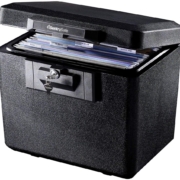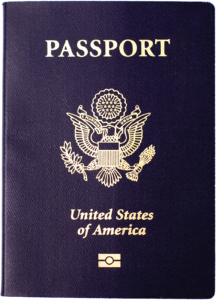A question I get asked all the time is, “What papers do I need to keep, and how long do I need to keep them?” So, in response to that I’ve come up with a list of paper retention guidelines. It will help you figure out what to keep and for how long. I must point out that I am not an accountant, CPA, lawyer, or tax specialist. This list is my recommendation, but you must always do what you feel most comfortable doing. If you have questions seek another opinion from one of the previously mentioned professionals.
Auto & other vehicles
Accident records – as long as you own vehicle
General maintenance receipts – 1 year
Insurance documents – keep most recent and discard previous versions
Insurance monthly payments – 1 year
Loan agreement – as long as you own vehicle
Loan payments – 1 year
Purchase agreement – as long as you own vehicle
Sales agreement – 3 years after sale of vehicle
Title -as long as you own vehicle
Warranted services – as long as you own vehicle
Bank
Account documents – for as long as you have account
ATM slips – verify against statement then shred
Check register – verify then shred
Loan documents – 3 year after loan has been paid
Monthly statements – 1 to 3 years
Credit cards
Account documents – for as long as you have account
Monthly statements – 1 to 3 years
Purchase receipts – verify against statement then shred, unless for warranty or taxes
Employment
Awards – individual preference
Certificates – keep until verified with employee records
Handbook – keep most recent and discard previous versions
Licenses & Contract – keep most recent 2 years and discard previous versions
Pay stubs – until end of year and verified by W2
Pension information – keep most recent 3 years and discard previous versions
Performance reviews – 5 years or job termination
Resume and references – individual preference
W2 and tips – 3 to 7 years or forever
Financial
Investment documents & IRAs – 3 to 7 years
Monthly or quarterly statements – 1 year, verify with year end statement
Purchase agreements – for duration of ownership
Sale agreements – 3 years after sale
Year-end statements – 3 to 7 years
Home Improvement
Instruction manuals – if used as long as you own product
Receipts for improvements & energy incentives – as long as you own home
Service contracts – as long as you have service
Warranties – as long as they are viable
Insurance (home owners, life, renters, supplemental, vehicles)
Policies – keep most recent and discard previous versions
Statements – 3 to 7 years
Mail
Advertisements – recycle
Announcements – recycle
Catalogues – 1 month then recycle
Circulars – 1 week then recycle
Correspondence – individual preference
Coupons/offers/promotions – use or recycle
Greeting cards – individual preference
Invitations – until event, then individual preference
Magazines – 1 month then recycle
Newsletters – 1 month then recycle
Newspapers – 1 week then recycle
Pledges – donate and keep for taxes or recycle
Solicitations – take action or recycle
Medical & Dental
Bills – 3 years after payment verification
Explanation of benefits – 6 months
Instructions – keep until no longer valid
Medication information and prescription slips – read then shred or keep until expired
Reference information – 5 years or until outdated
Routine visits receipts – 1 to 2 years
Surgery and special visits receipts – indefinitely or individual preference
*If you itemize your medical and dental expenses keep all supporting records for 3 to 7 years, including travel, parking and toll records.
Military
Admission papers – indefinitely
awards and honors – individual preference
Discharge – forever
Military ID – forever
Property/Real Estate
Deed – as long as you own
Lease agreement – as long as you lease
home improvement documents – until you sell
maintenance – 3 years
mortgage statements – 3 to 7 years
purchase and sale agreement – as long as you own
Purchases
Instructions – if used keep as long as own
Manual – if used keep as long as own
Sales receipt – recycle after decision to keep is made, unless for warranty
Warranty – keep for duration warranty
Taxes
Documents: 1099, 1095 and all forms, alimony, business income & expenses, charitable donations, child care & education expenses, excise tax, gambling, interest statements, investment papers, tax payments, real estate tax, refund receipts, tax return (federal and state), W2s
3 Years – IRS has 3 years from your filing date to audit your return if it suspects good faith errors, and you have 3 years to amend a return if you discover a mistake; therefore keep all tax returns, payment receipts, and supporting documents for at least 3 years.
7 Year – IRS has 6 years from your filing date to challenge your return if it thinks you underreported your gross income by 25% or more
Forever – there is no limit if you failed to file a return or filed a fraudulent return
Utilities – electric, gas, internet, phone, other
Bills – verify then shred
Maintenance – 1 to 2 years
Warranties – until no longer valid
Vital documents
Birth and adoption certificate – forever
Death certificate – forever
Deeds – until sold
Divorce decree – forever
Estate-planning documents (health care proxy, life insurance, living will and will, Power of attorney, trusts) – update every 5 years
Passport – keep most recent
Marriage license – forever
Naturalization papers – forever
Social security card – forever
Titles – until sold
©February 2020 Janine Cavanaugh, Certified Professional Organizer All Rights Reserved









Follow Me